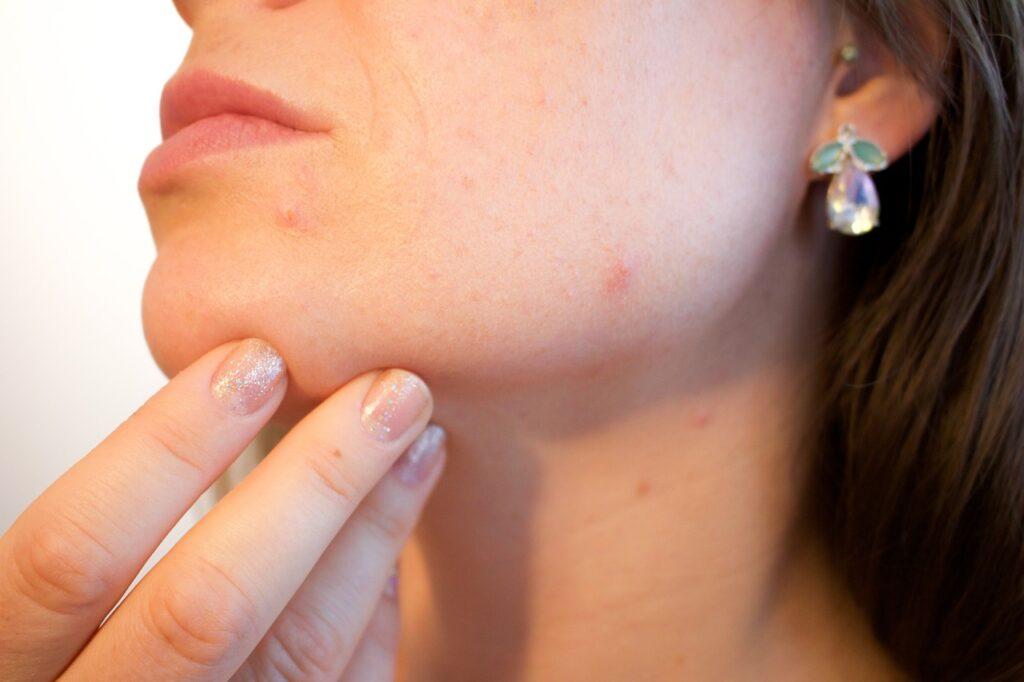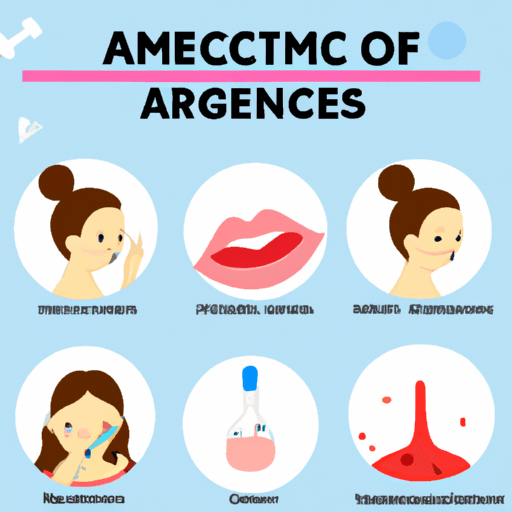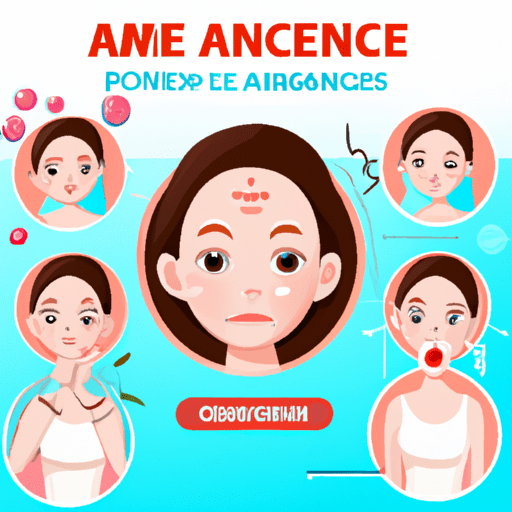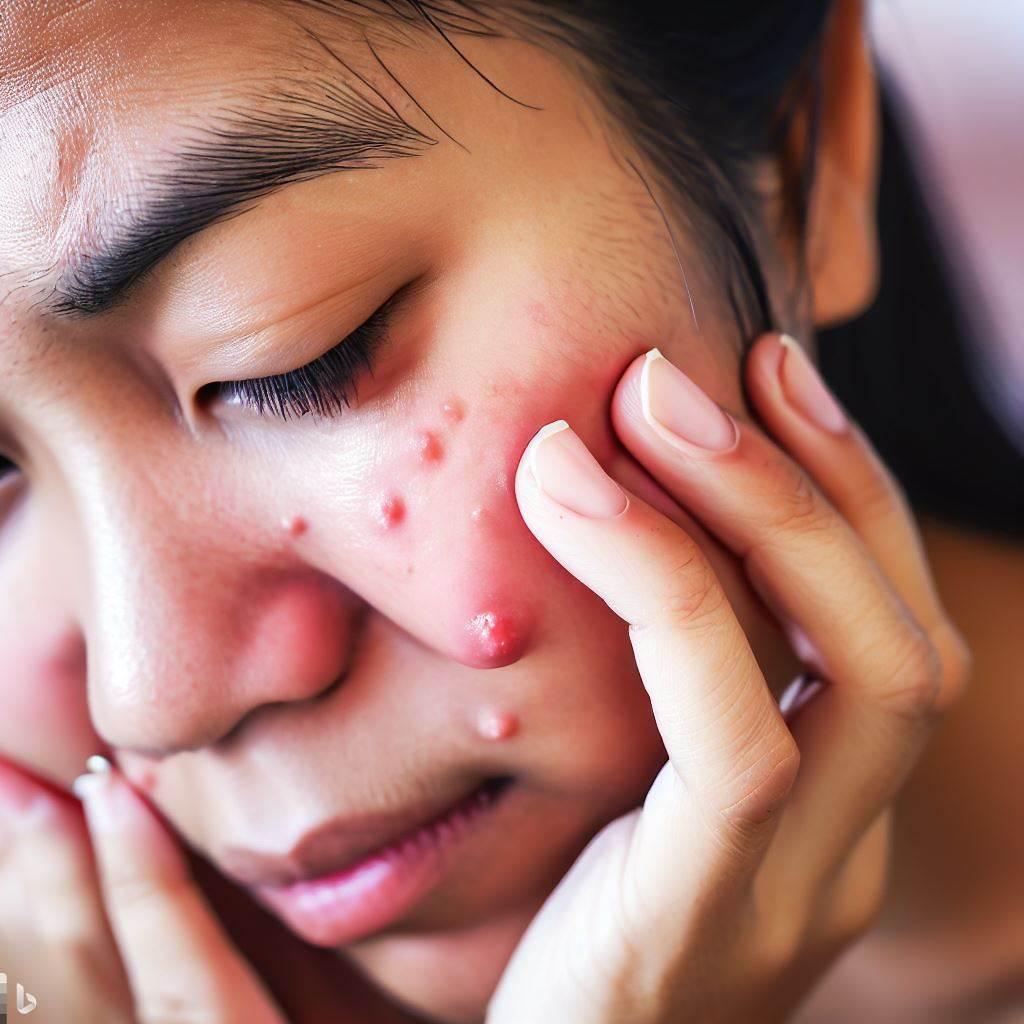If you’ve been battling with persistent breakouts and wondering why your usual acne treatments aren’t working, it might be time to consider whether your acne is hormonal. Hormonal acne can be frustrating to deal with, as it is often caused by fluctuations in hormone levels that can be hard to control. In this article, we will explore some telltale signs that indicate your acne is hormonal, helping you better understand your skin and find the most effective solutions for clearer, healthier skin. So, if you’re ready to put an end to your acne struggles and take control of your skin, keep reading!
Differentiating Hormonal Acne
Acne is a common skin condition that affects people of all ages. While many factors can contribute to the development of acne, hormonal imbalance is often a major culprit. Hormonal acne differs from other types of acne in various ways. Understanding the signs and symptoms of hormonal acne is essential for effective treatment and management. In this comprehensive article, we will delve deep into the world of hormonal acne and provide you with valuable insights on how to differentiate and manage this particular type of acne.
Understanding Hormonal Acne
Hormonal acne is primarily caused by fluctuations in hormone levels, specifically androgens such as testosterone. These hormones can lead to excessive oil production and inflammation, resulting in the formation of acne. Hormonal acne is most commonly observed in women, particularly during certain life stages such as puberty, menstruation, pregnancy, and menopause. However, men can also experience hormonal acne, although it is less common. Understanding the underlying hormonal factors of acne is crucial in determining the appropriate treatment approach.

Non-hormonal Acne
Before delving into the specifics of hormonal acne, it’s important to briefly touch upon non-hormonal acne. Non-hormonal acne is typically attributed to factors such as excessive sebum production, clogged pores, bacteria, and inflammation. While hormonal imbalances can contribute to non-hormonal acne to some extent, the primary cause of this type of acne lies in other factors. Non-hormonal acne is often more responsive to over-the-counter topical treatments and can be effectively managed with a consistent skincare routine.
Physical Signs of Hormonal Acne
Recognizing the physical signs of hormonal acne is the first step in determining whether your acne is due to hormonal imbalances. While everyone’s experience with hormonal acne can vary, there are some common characteristics to look out for.
Acne Location
One distinguishing feature of hormonal acne is its specific location on the face and body. Hormonal acne is commonly found on the lower half of the face, including the chin, jawline, and neck. This distribution pattern is different from non-hormonal acne, which tends to affect the T-zone area (forehead, nose, and chin). If you notice a recurrent pattern of acne in these specific areas, it may indicate that hormonal factors are at play.
Adult Onset Acne
Another significant sign of hormonal acne is its onset in adulthood. Many individuals experience a resurgence of acne during their late twenties or thirties, even if they had relatively clear skin during their teenage years. This sudden appearance of acne in adulthood is often indicative of hormonal fluctuations and can be a result of various factors such as stress, diet, and lifestyle changes.
Cystic Acne
Cystic acne, characterized by deep, painful, and inflamed nodules, is more common in hormonal acne. These stubborn and often persistent cysts are typically difficult to treat with over-the-counter remedies and may require medical intervention. If you consistently experience deep, painful acne lesions that leave behind scars or dark marks, it is likely that hormonal factors are contributing to your acne.

Changes in Acne Pattern
Hormonal acne is not static; it often exhibits changes in its pattern according to different hormonal fluctuations throughout a person’s life. Understanding these patterns can help you recognize hormonal acne and take appropriate action.
Menstrual Cycle Fluctuations
For many women, hormonal acne tends to worsen around the time of menstruation. The fluctuations in estrogen and progesterone levels during the menstrual cycle can lead to increased sebum production and clogged pores, resulting in the formation of acne. If you notice a recurring pattern of acne breakouts in the days leading up to your period, it is likely that hormones play a significant role in your acne.
Pregnancy and Hormonal Acne
Pregnancy is another life stage where hormonal fluctuations can trigger or exacerbate acne. The increase in hormones during pregnancy can stimulate the sebaceous glands, leading to heightened oil production and acne breakouts. It’s important to note that not all pregnant individuals experience acne, and for some, the hormonal changes may actually improve their skin condition. If you’re pregnant and experiencing acne, it is crucial to consult with your healthcare provider for personalized advice.
Perimenopause and Menopause
As women approach perimenopause and menopause, hormonal changes become more pronounced. The decline in estrogen levels and the relative dominance of androgens during this time can lead to acne breakouts. Hormonal acne during perimenopause and menopause often presents itself with other skin changes, such as dryness and thinning. If you are experiencing acne alongside other menopausal symptoms, it is advisable to seek medical guidance to manage your hormonal fluctuations effectively.
Emotional and Behavioral Factors
While hormonal imbalances are the primary cause of hormonal acne, emotional and behavioral factors can also contribute to its development and severity. Understanding the interplay between stress and hormonal acne, as well as the response to hormonal treatments, is essential for holistic management of this condition.
Stress and Hormonal Acne
Stress is known to exacerbate many skin conditions, including acne. When you’re under stress, your body releases cortisol, a stress hormone that can disrupt your hormonal balance and trigger inflammation. This can lead to increased oil production, clogged pores, and ultimately, acne breakouts. Managing stress through relaxation techniques, exercise, and adequate sleep can significantly reduce the impact of stress on hormonal acne.
Hormonal Treatment Response
It’s important to note that not all hormonal acne responds equally to treatment. While some individuals may experience significant improvement with hormonal treatments, such as oral contraceptives or anti-androgen medications, others may find them less effective. This discrepancy in treatment response can be attributed to various factors, including the severity of hormonal imbalance, individual biochemistry, and underlying health conditions. It is crucial to consult with a healthcare professional to determine the most suitable treatment plan for your hormonal acne.

Medical Evaluation
If you suspect that your acne is hormonal, a medical evaluation is essential to confirm the underlying causes and guide appropriate treatment options. Seeking the expertise of a dermatologist and undergoing hormone testing can provide valuable insights into your hormonal profile. Additionally, certain conditions like Polycystic Ovary Syndrome (PCOS) can contribute to hormonal imbalances and acne.
Dermatologist Consultation
A dermatologist is a medical professional who specializes in the diagnosis and treatment of skin conditions, including acne. Consulting with a dermatologist is highly recommended to accurately diagnose your acne type and determine the best course of action. They can assess your skin, analyze potential hormonal factors, and recommend suitable treatments or lifestyle modifications.
Hormone Testing
Hormone testing involves analyzing blood or saliva samples to measure hormone levels in the body. This testing can help identify specific hormonal imbalances, such as elevated androgens or hormonal deficiencies, which may contribute to acne. Comprehensive hormone testing can provide valuable insights that inform treatment decisions and personalized approaches for managing hormonal acne.
Polycystic Ovary Syndrome (PCOS)
Polycystic Ovary Syndrome (PCOS) is a hormonal disorder that affects many women and is often accompanied by hormonal acne. PCOS is characterized by imbalances in reproductive hormones, insulin resistance, and the development of cysts on the ovaries. If you suspect that PCOS may be contributing to your hormonal acne, it is crucial to consult with a healthcare professional for a comprehensive evaluation and appropriate management strategies.
Treating Hormonal Acne
Once the hormonal nature of your acne is confirmed, there are several treatment options available to help manage and control the condition. The appropriate treatment approach will depend on various factors such as the severity of acne, overall health, and individual preferences. Here are some common treatment options for hormonal acne.
Oral Contraceptives
Oral contraceptives, often referred to as birth control pills, are a common treatment option for hormonal acne in women. These medications contain synthetic hormones that regulate the natural hormonal fluctuations in the body. By reducing androgen levels and stabilizing hormone production, oral contraceptives can effectively reduce acne breakouts. However, it is crucial to consult with a healthcare professional to determine the most suitable contraceptive option and to weigh the potential risks and benefits.
Anti-androgen Medications
Anti-androgen medications are another effective treatment option for hormonal acne, particularly in women with excessive androgen production. These medications work by blocking the androgen receptors, reducing sebum production, and preventing acne formation. Spironolactone, a commonly prescribed anti-androgen medication, has shown promising results in managing hormonal acne. As with any medication, it is important to discuss potential side effects and limitations with your healthcare provider.
Topical Treatments
Topical treatments, such as retinoids, benzoyl peroxide, and antibiotics, can be beneficial in managing hormonal acne, particularly when combined with oral medications. Retinoids help unclog pores, reduce inflammation, and promote cell turnover, while benzoyl peroxide and antibiotics target bacteria that contribute to acne formation. These topical treatments can be tailored to your specific needs and can effectively complement oral medications in managing hormonal acne.
Lifestyle Changes
In addition to medical treatments, adopting certain lifestyle changes can also play a crucial role in managing and preventing hormonal acne. Here are a few lifestyle modifications that can help improve hormonal balance and reduce acne breakouts:
- Maintain a well-balanced diet rich in fruits, vegetables, whole grains, and lean proteins. Avoid excessive consumption of refined sugars, processed foods, and dairy products, as they may exacerbate hormonal imbalances and contribute to acne.
- Ensure you get enough sleep and practice good sleep hygiene. Sufficient rest and quality sleep are essential for regulating hormone production and reducing stress, which can greatly benefit hormonal acne.
- Incorporate regular exercise into your routine. Physical activity helps regulate hormone levels, improves blood circulation, and promotes overall skin health. Aim for at least 30 minutes of moderate exercise most days of the week.
- Manage stress through relaxation techniques, meditation, breathing exercises, or engaging in activities that bring you joy. Chronic stress can disrupt hormonal balance and contribute to acne breakouts.
Skin Care Routine for Hormonal Acne
Adopting a proper skincare routine is crucial for managing hormonal acne. A comprehensive routine will focus on cleansing, exfoliating, moisturizing, and sun protection.
Proper Cleansing
Gentle cleansing is vital for hormonal acne-prone skin. Choose a pH-balanced facial cleanser that effectively removes dirt, excess oil, and impurities without irritating or stripping the skin. Avoid harsh cleansers or scrubbing the skin aggressively, as this can worsen inflammation and disrupt the skin’s natural barrier.
Exfoliation and Masks
Regular exfoliation can help prevent clogged pores and remove dead skin cells. However, it’s important to choose gentle exfoliants that are suitable for acne-prone skin. Chemical exfoliants containing ingredients like salicylic acid or glycolic acid are often recommended for hormonal acne. Additionally, incorporating occasional clay masks can help absorb excess oil and minimize breakouts.
Moisturizing and Sun Protection
Contrary to popular belief, moisturizing is essential even for acne-prone skin. Look for lightweight, non-comedogenic moisturizers that hydrate and protect the skin without clogging pores. Additionally, always apply a broad-spectrum sunscreen with at least SPF 30 to shield your skin from harmful UV rays. Sunscreen is essential not only for overall skin health but also for preventing post-inflammatory hyperpigmentation that can occur after acne breakouts.
Dietary Considerations
While diet alone may not be the sole cause of hormonal acne, certain dietary considerations can positively impact hormonal balance and contribute to clearer skin.
Balanced Diet
Maintaining a balanced diet is crucial for overall health and hormonal balance. Focus on consuming a variety of fruits, vegetables, whole grains, lean proteins, and healthy fats. A diet rich in antioxidants, omega-3 fatty acids, and vitamins can help support healthy skin and reduce inflammation.
Foods to Avoid
Certain foods can exacerbate hormonal imbalances and trigger acne breakouts. These include highly processed foods, refined sugars, dairy products, and foods with a high glycemic index. It may be beneficial to limit your consumption of these foods or avoid them altogether to promote better skin health.
Supplements
Supplements, under the guidance of a healthcare professional, can be considered as adjunctive support for managing hormonal acne. Some supplements have shown potential benefits in regulating hormone levels and reducing inflammation. These may include omega-3 fatty acids, zinc, vitamin D, and certain herbal remedies like evening primrose oil or chasteberry extract. However, it is important to consult with a healthcare professional to determine the appropriate dosage and potential interactions with any medications you may be taking.
Managing Hormonal Fluctuations
In addition to specific treatment options and lifestyle modifications, managing hormonal fluctuations plays a vital role in controlling hormonal acne.
Hormone Regulation Techniques
There are several techniques you can incorporate into your daily routine to help regulate hormonal fluctuations naturally. These include stress management, maintaining a regular sleep schedule, and avoiding hormone-disrupting substances such as excessive alcohol or recreational drugs. Implementing relaxation techniques like deep breathing exercises, mindfulness meditation, or yoga can also aid in hormonal balance and reduce acne-related stress.
Stress Management
Stress management is crucial for overall well-being and hormonal balance. Chronic stress can contribute to hormonal imbalances, trigger inflammation, and worsen acne breakouts. Find stress-reducing techniques that work best for you, such as engaging in hobbies, practicing mindfulness, spending time in nature, or seeking support from loved ones. Remember, it’s important to prioritize self-care and allow yourself time to relax and rejuvenate.
Exercise
Regular exercise has numerous benefits for hormonal balance and overall skin health. Engaging in physical activity can help regulate hormone levels, reduce stress, improve blood circulation, and promote detoxification. Aim for a mix of cardiovascular exercises, strength training, and activities that bring you joy and make you feel energized. However, be mindful of sweating and immediately cleanse your skin afterwards, as sweat can potentially contribute to clogged pores and acne breakouts.
Conclusion
Understanding how to differentiate hormonal acne from other types of acne is crucial for effective treatment and management. By recognizing the physical signs, changes in acne patterns, and emotional factors associated with hormonal acne, you can take the necessary steps to achieve clearer and healthier skin. Seeking medical evaluation, evaluating treatment options, adopting a comprehensive skincare routine, considering dietary considerations, and managing hormonal fluctuations are all essential components in the battle against hormonal acne. Remember, it is always advisable to consult with healthcare professionals, such as dermatologists or endocrinologists, to receive personalized advice and guidance in managing your hormonal acne effectively.




